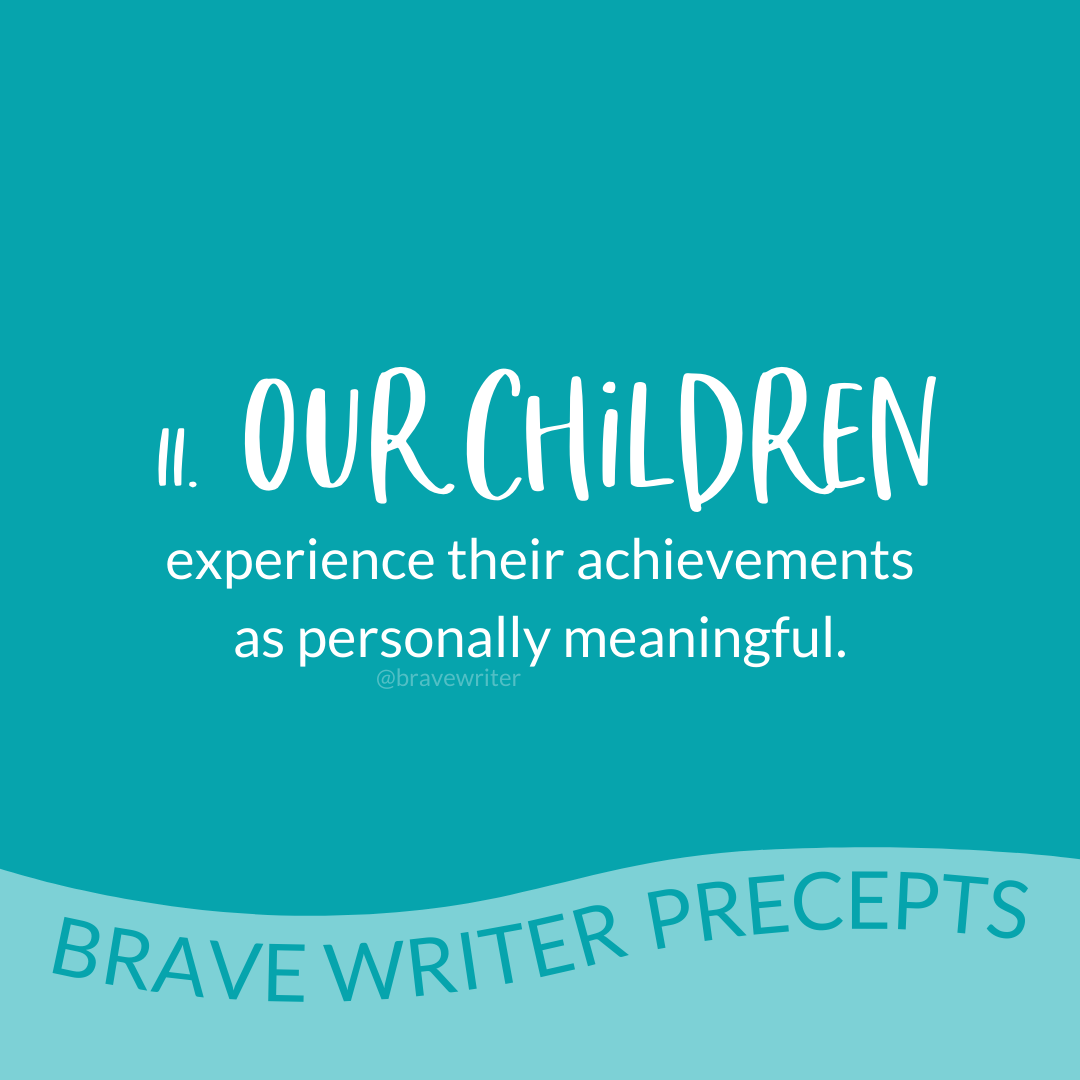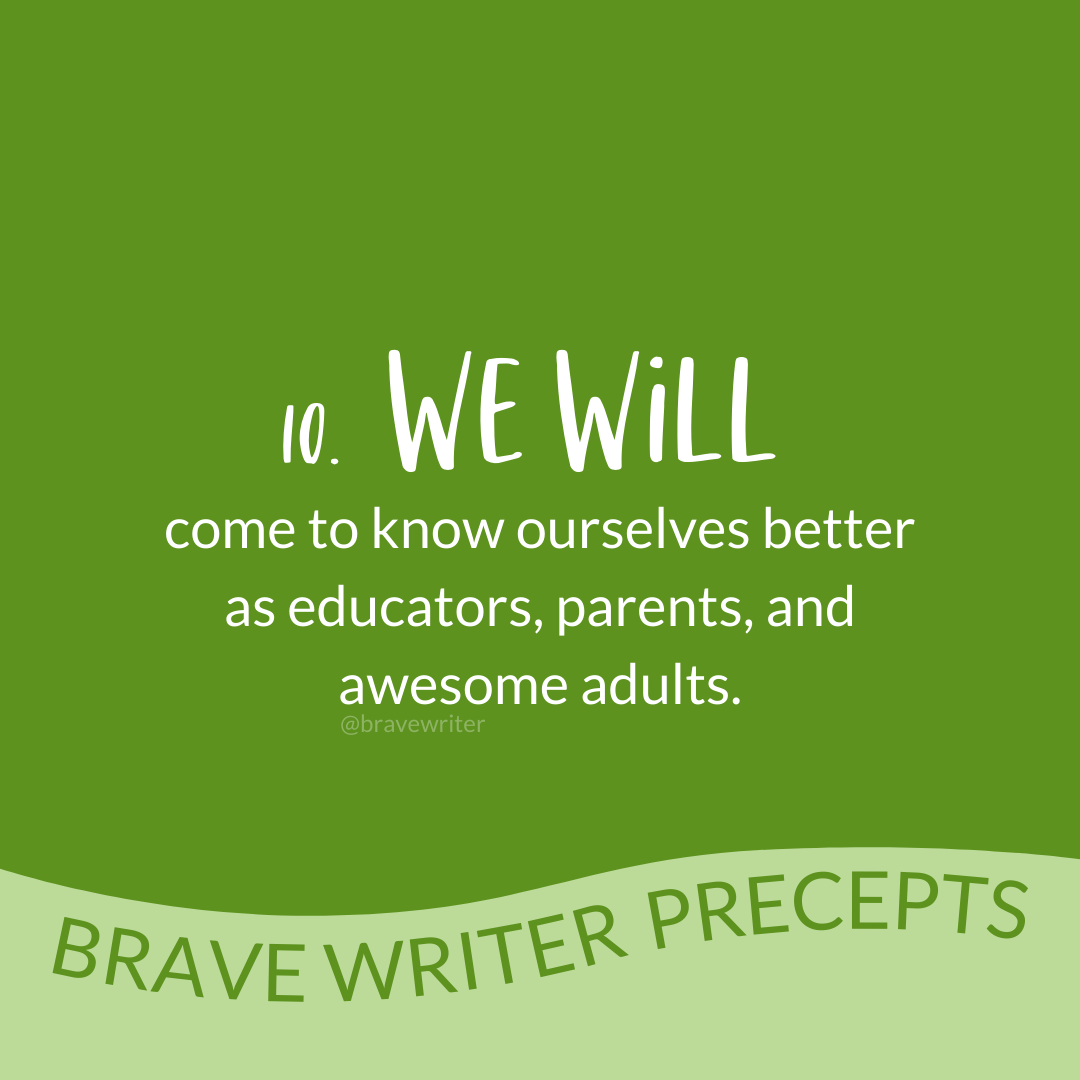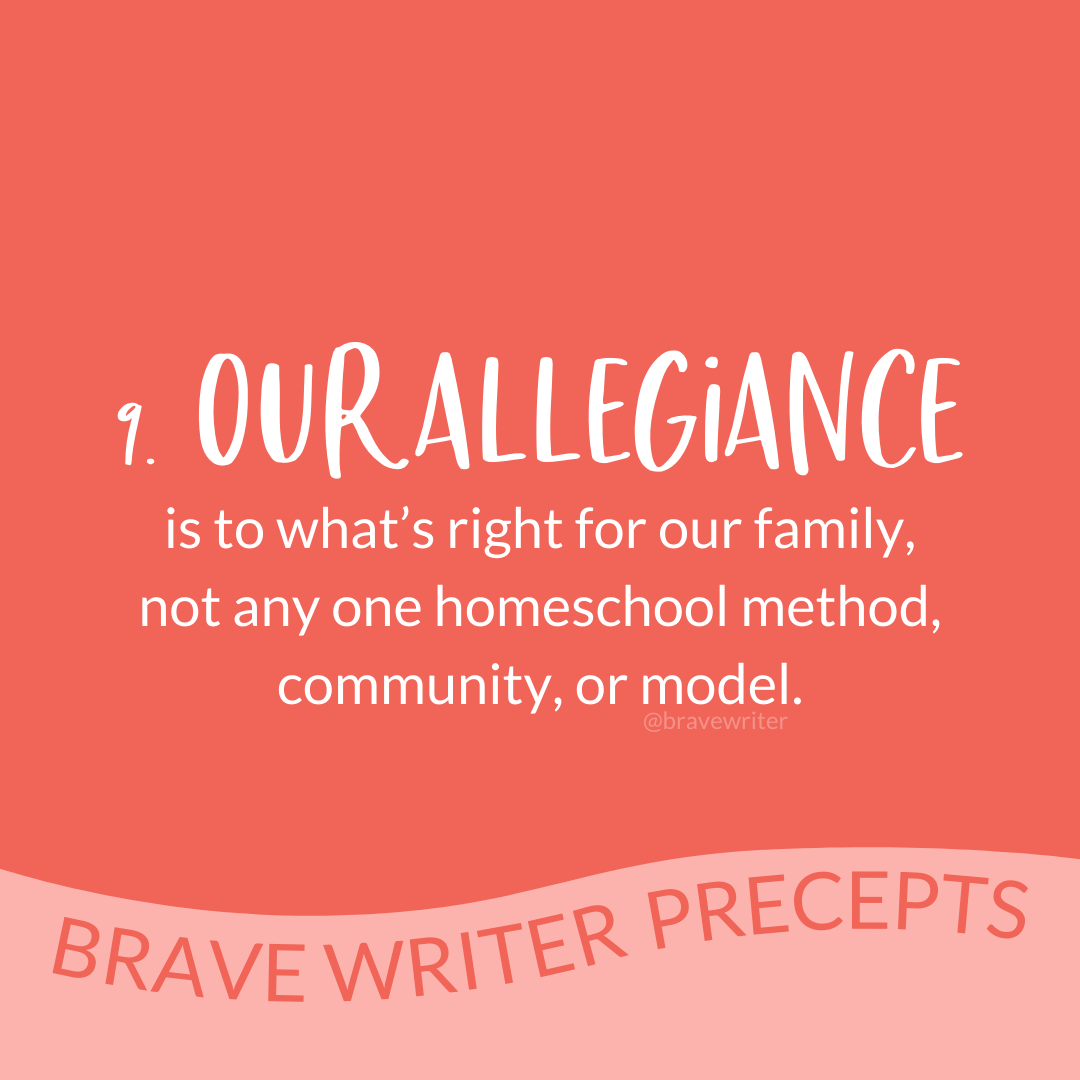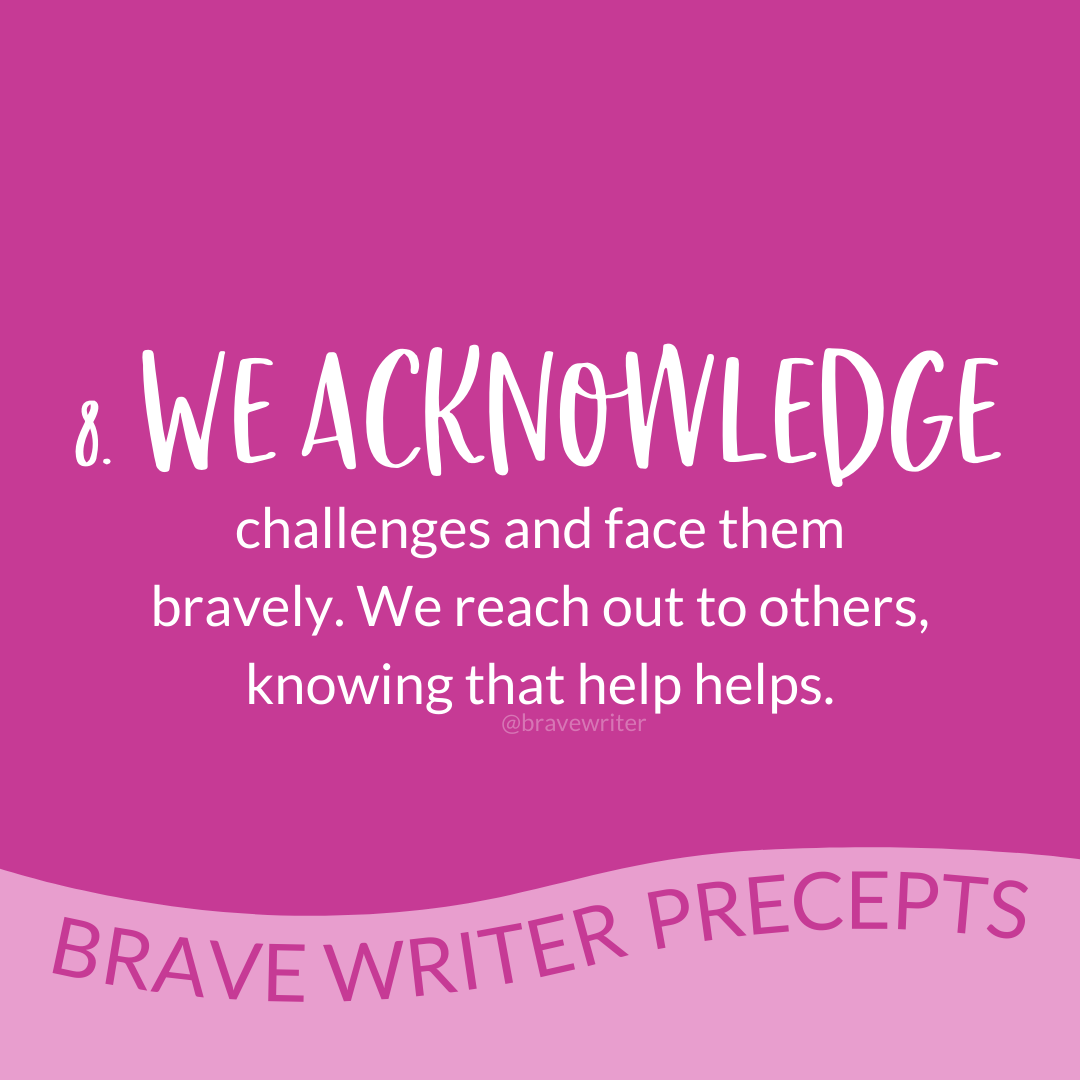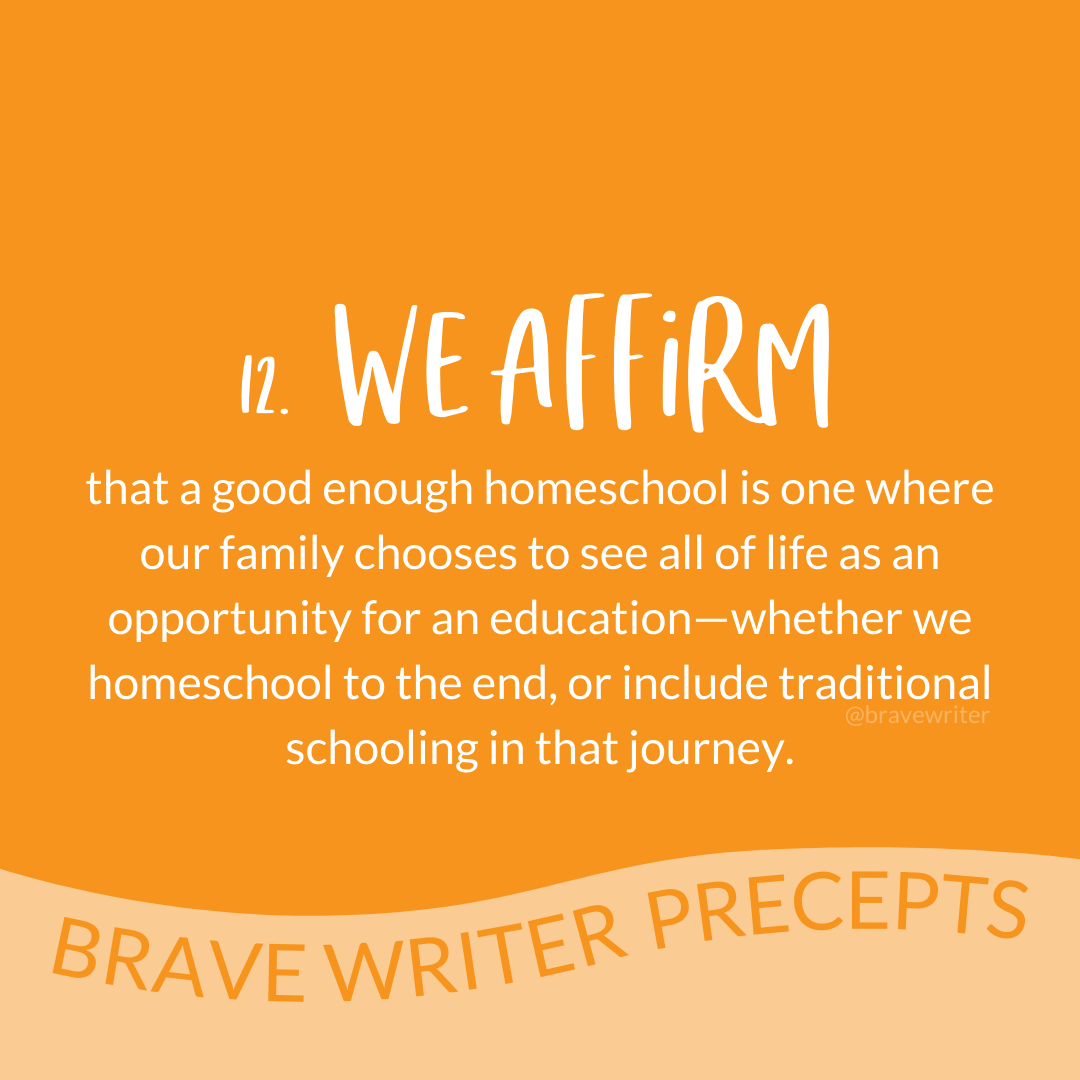
The twelfth Brave Writer precept is: We affirm that a good enough homeschool is one where our family chooses to see all of life as an opportunity for an education—whether we homeschool to the end, or include traditional schooling in that journey.
It’s time to bring our precept journey to a close! We have twelve in all, and this one is the key to the whole experience of parent-invested education.
We may want a formula, or a plan, or a guarantee that what we choose will lead to high academic achievement and happy, life-long learners. We may think that the choices we make are so critical that if we miss the mark or experiment, we will fail.
A Shared Life of Learning
What we all know about homeschooling is this: it is merely a shared life of learning. Learning includes (by definition):
- discovery of what works and doesn’t,
- understanding more over time,
- gaining skills with practice.
If that’s true of math and writing, it’s also true of providing an education. We learn by doing and in doing, we discover what is best for each child in our family. Sometimes that journey includes going to traditional schools as part of the education process.
“You’re doing it right if you stay connected, and every now and then pause in awe. Look! Those are my amazing human beings!” –The Brave Learner


